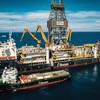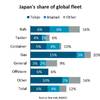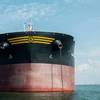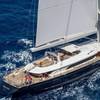Round Table Meeting in Beijing
In connection with a recent Shipping Industry meeting in Beijing the four Chairmen of the Round Table of international shipping associations (RT) which comprises BIMCO, ICS, Intercargo and Intertanko, met to discuss issues of common interest including piracy, the plight of the “Hebei Spirit” officers and practical measures to reduce Greenhouse Gas emissions from ships.
The state of lawlessness and recent escalation of piracy attacks in the Gulf of Aden is of enormous concern to the international shipping industry.
The RT supports and commends those States that have provided warships to operate in the Gulf of Aden. The presence of these ships is believed to have already had a mitigating effect against pirate attacks although recent events indicate that the warships are too few and too far apart. There is a fundamental need for coordination in the use of warships and airborne surveillance and support.
The Round Table reaffirmed its opposition to the use of armed guards onboard merchant ships as it was likely to lead to an escalation in the level of violence associated with these attacks, and even more importantly, it would most likely put the crews in harms way.
The RT Chairmen urged shipowners to stringently follow recommended passive defensive measures when transiting the area, to maintain contact with the naval authorities as well as reporting any attacks or suspicious activities to the International Maritime Bureau.
The RT Chairmen expressed great dismay over the continuing detention of the two officers from the “Hebei Spirit” in Korea despite having been found innocent of all charges by the Korean Court in June 2008. At a recent session of the IMO Legal Committee, the RT had joined forces with the International Group of P&I Clubs and the International Transport Workers’ Federation to deliver a statement conveying the industry’s great concern at the continued detention of the two ship’s officers of the “Hebei Spirit”.The RT maintains that the detention appears to be contrary to the principles established in the joint IMO/ILO Guidelines on the Fair Treatment of Seafarers in the Event of a Maritime Accident.
One topical item covered was the industry’s response to the challenge of Greenhouse Gases – GHG - in relation to shipping. The Chairmen noted that many shipowners had already undertaken measures to reduce GHG emissions but agreed that there were technical, operational as well as commercial issues that required further investigation. They reaffirmed that the associations will continue to be actively engaged in the GHG debate.
The Chairmen reiterated their associations’ support in principle for the Energy Efficiency Design Index for new vessels being developed at IMO, and the RT would be engaged in further debate on its method of application and in the gathering of data to test the formula. The RT has also been active in putting forward at IMO the concept of a ‘Ship Efficiency Management Plan’, (SEMP), to promote best practice in reducing CO2 emissions from existing vessels. A voluntary ‘Operational Index’, was an integral part of the SEMP and would provide the mechanism for shipping companies to work with the other stakeholders, such as charterers, shippers, ports and terminals, to monitor for continuous improvement in the energy efficiency of their ships.
The Round Table of international shipping associations includes BIMCO, ICS (the International Chamber of Shipping), Intercargo (The International Association of Dry Cargo Shipowners) and Intertanko (The International Association of Independent Tanker Owners). These organisations represent all segments of the industry including the owners and managers of all types of ships.















